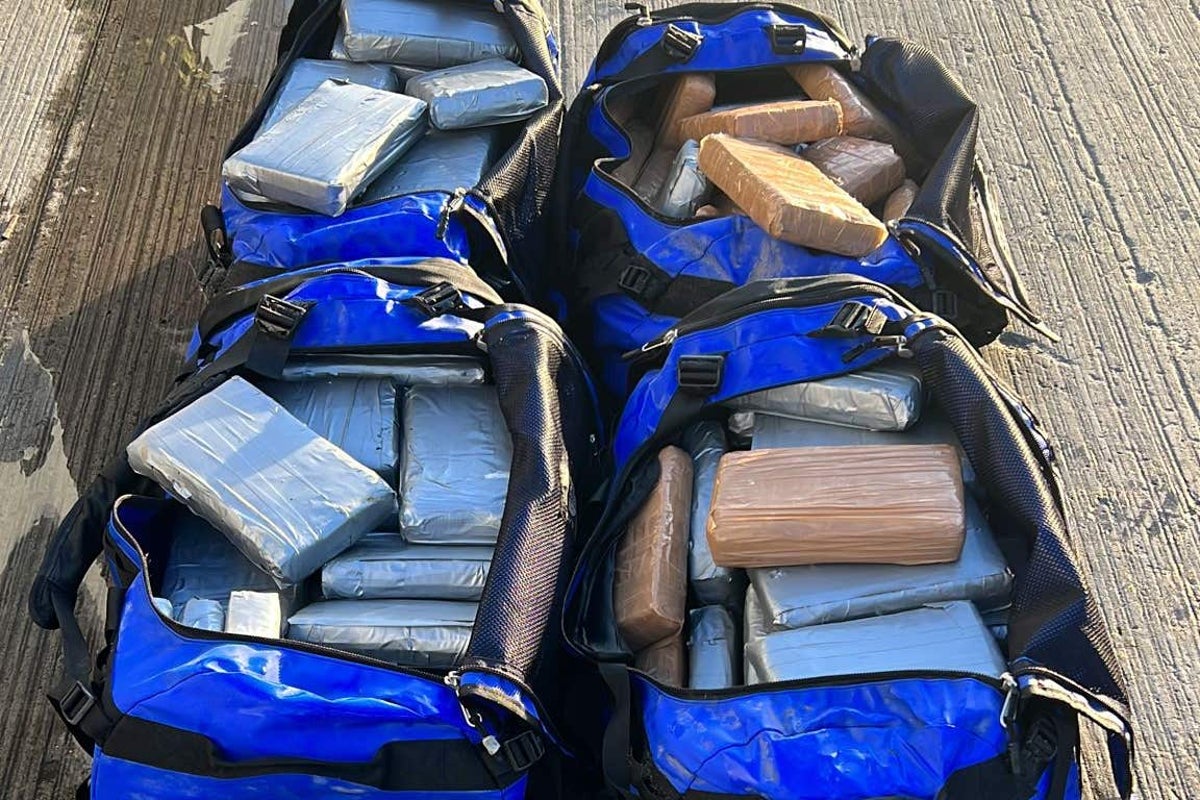
Some £10 million worth of cocaine has been seized following a raid on a container ship at a port in Kent.
The National Crime Agency (NCA) said drugs were discovered at Sheerness Port on a Panamanian-registered ship transporting bananas to the Netherlands on October 14.
The cocaine, which weighed 137 kilos (302 pounds), was hidden in four large holdalls placed below the water line inside the sea chest, an intake area used for seawater to maintain ship stability.
The discovery followed a joint investigation by the NCA, the Metropolitan Police, and Border Force.
A team of specialist Met Police divers carried out an underwater search of the ship’s hull in poor visibility conditions.
With the assistance of officers from the Border Force National Deep Rummage Team and port operator Peel Ports, the divers were able to recover the drugs that were hidden behind bolted-up grills – the operation took five hours to complete.
David Phillips, NCA’s operations manager, said: “This was an extremely rare and sophisticated concealment, and shows how far criminal networks will go to get dangerous drugs like cocaine into circulation.
“The sale of such class A drugs is controlled by gangs who inflict violence and exploitation in our communities.
“I’d like to thank the Metropolitan Police’s Diving Team, who worked in challenging conditions to recover the drugs, assisted by our colleagues in Border Force.
“Such collaboration shows our collective determination to tackle organised criminal groups head-on, and stem the supply of harmful drugs like cocaine.”
This is one of two underwater concealments of class A drugs of its kind ever discovered in the UK.
In November 2021, 46 kilos (101.4 pounds) of cocaine was found during an operation in Bristol.
A Met Police spokesperson said: “Our diving operations team were conducting an underwater search of the ship’s hull.
“This required detailed planning and partnership working to ensure this was a controlled, safe and effective diving operation
“All of the teams worked collaboratively to manage the risks which included reduced visibility, tidal movements and depth of the water.
“All of those risks and more demonstrate the difficult working environment in which the teams were operating.
“As the divers emerged from the water our teams made efforts to conceal and secure the Class A drugs.
“However, with great teamwork and physical effort from all teams, we were able to stop a large quantity of Class A drugs from reaching their intended destination.”
The NCA is now working with law enforcement in the Netherlands and Panama.
Stephen Whitton, deputy director of Border Force Maritime Command, said: “The combined efforts of the NCA, the Met Police, and Border Force, have prevented £10 million worth of cocaine from plaguing our streets and countries nearby.
“Border Force remain committed to working round the clock to intercept drug supply chains and will continue to work closely with our counterparts to identify and prevent the new methods criminals take to smuggling illegal drugs, in or out of the UK.”







